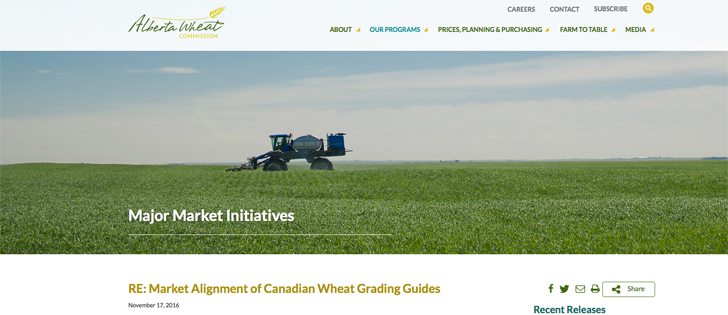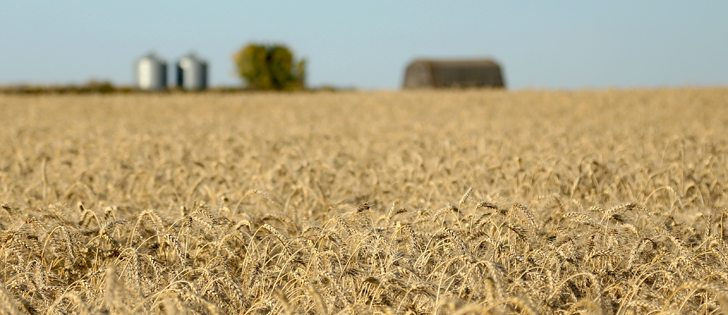The Alberta Wheat Commission (AWC) is renewing calls for a modernized Canadian grain grading system that’s more in line with international market demands for Canadian wheat.
In a Nov. 17 news release, the AWC says the Canadian wheat grading system needs to be reformed to “improve long-term profitability for farmers.”
The AWC is calling on the Canadian Grain Commission (CGC) to establish a market-based system that’s aligned with universally measured grain specifications.
Such a system would enhance the competiveness of western Canadian wheat growers and would ensure that they receive fair market value for the grain they produce, the AWC claims.
Read Also

Saskatchewan firm aims to fix soil with compost pellets
In his business, Humaterra, Leon Pratchler is helping farmers maximize yields in the weakest areas of their fields through the use of a compost pellet.
“We have observed an evolution in the way wheat is marketed to Canada’s customers,” said AWC chair Kevin Auch.
“International buyers aren’t looking purely at CGC grades — they’re looking at universal quality specs. Modernizing our grading system is a necessary move to ensure Alberta’s farmers receive the maximum value for the quality of wheat they produce.”
Because Canadian farmers do not sell their grain directly to international buyers, they rely on the systems in place to ensure the quality of their grain aligns with the needs of our customers, the AWC argues.
To that end, the Alberta commission is recommending a revised system that uses accurate testing methods to identify potential downgrading factors, such as falling number (FN) tests for sprout damage, and deoxynivalenol (DON) testing to assess the impact of fusarium graminearum on wheat quality.
This would limit the instances where wheat is downgraded based on visual assessment criteria, even though the grain itself meets the specs of international grain buyers.
The AWC pointed out that some grain companies are already test for falling number at their local grain collection facilities.
“This crop year has resulted in variable quality for farmers in Alberta and across the Prairies,” said Auch.
“We want to ensure that our grading system is not severely downgrading wheat that is considered good quality milling wheat in international markets.”
CGC spokesperson Remi Gosselin said the CGC has been moving toward a grading system that relies more heavily on objective analytical measures to determine grain grades and quality.
Over time, the grading system will depend more on science-based tools and less on subjective visual assessments, he added.
But the transition will take time and will require a thorough consultation with the industry to assess costs, implementation issues and potential impacts.
“The grain commission has been working towards ensuring that the grain grading system be base on science,” Gosselin said.
“We have specifically identified the move from subjective visual factors to objective analytical factors as a direction in which we want to take the grading system.”
Gosselin said the Eastern and Western Standards Committees have already been advised of the CGC’s decision to move to a grading system based on analytical data as opposed to visual assessments.
The grain commission will be “establishing a team to advance this effort and it will engage heavily with affected producer groups,” he added.
AWC expressed support for changes to mildew guides that were recently announced by the CGC. But it also called on the grain commission to evaluate and align Canada’s mildew guides with United States (U.S.) standards.
The AWC raised its concerns over the existing grading system to the in a Nov. 14 letter addressed to CGC’s acting chief commissioner Jim Smolik.
A copy of that letter can be viewed here.
Contact brian.cross@producer.com















